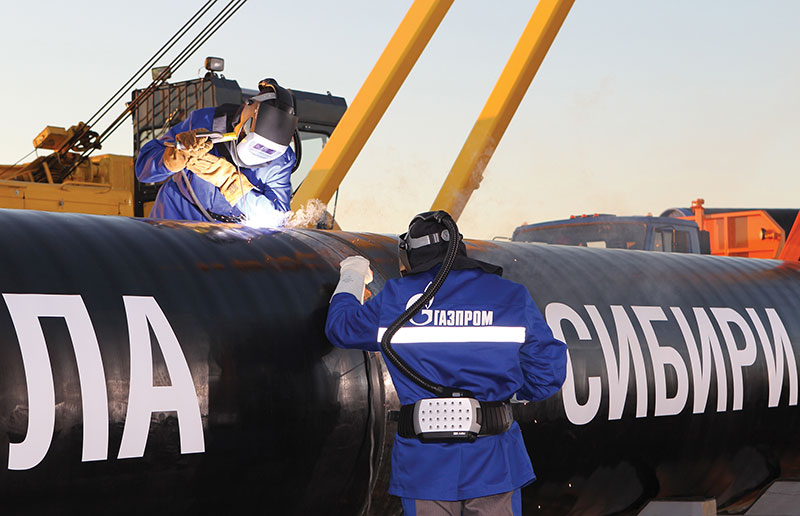Putin Suggests Potential for Oil Pipeline Alongside Planned Gas Link to China
(Reuters) — Russia could deliver oil as well as gas to China along a planned route via Mongolia, President Vladimir Putin said on Friday.
Putin, wrapping up a two-day visit to China, said he and his hosts had confirmed their interest in moving forward with the proposed gas pipeline, the Power of Siberia 2.
"Moreover, it's possible to lay both a gas pipeline and an oil pipeline in the same corridor," Putin said, appearing to revive an idea that was discussed as far back as 2018.
However, he said there were also other options for supplying Russian energy to China including by tanker along the Northern Sea Route via the Arctic.
"All options are possible, they are all acceptable and economically feasible. It's necessary to choose the best one. I am sure this work will also be completed," he told a televised news conference.
Despite Putin's upbeat comments, and after years of discussion about the proposed Power of Siberia 2, Russia and China have yet to reach agreement to go ahead and build it. Putin's energy point man Alexander Novak said in a television interview they expected to sign a contract soon.
The project has taken on added urgency for Russia as it bids to ramp up gas shipments to China to make up for the collapse of its exports to Europe because of the war in Ukraine.
Putin said it was a complex process including questions of pricing, but that China's growing economy needed energy and there was no more reliable supplier than Russia. The project would also be immune to Western sanctions, he said.
"Nobody can get in the way of this, neither sanctions on tanker fleets nor even sanctions on financial institutions. We will buy and sell everything in our national currencies. So, the interest from both sides is confirmed."
The pipeline would carry 50 billion cubic meters of gas per year from the Yamal region in northern Russia - almost as much as the now idle Nord Stream 1 pipeline from Russia to Germany under the Baltic Sea that was damaged by explosions in 2022.
Russia currently sends gas to China through the Power of Siberia 1 pipeline, which began operating in 2019 and runs through eastern Siberia into northeast China.
Experts say that as China is not expected to need additional gas supply until after 2030, Beijing could drive a hard bargain on price for a second pipeline via Siberia.
Moscow has not said how much the 2,600 km (1,600 miles) Power of Siberia 2 would cost or how it would be financed. Some analysts have put the cost at up to $13.6 billion.
Related News
Related News

- Kinder Morgan Proposes 290-Mile Gas Pipeline Expansion Spanning Three States
- Enbridge Plans 86-Mile Pipeline Expansion, Bringing 850 Workers to Northern B.C.
- Intensity, Rainbow Energy to Build 344-Mile Gas Pipeline Across North Dakota
- U.S. Moves to Block Enterprise Products’ Exports to China Over Security Risk
- Court Ruling Allows MVP’s $500 Million Southgate Pipeline Extension to Proceed
- U.S. Pipeline Expansion to Add 99 Bcf/d, Mostly for LNG Export, Report Finds
- A Systematic Approach To Ensuring Pipeline Integrity
- 275-Mile Texas-to-Oklahoma Gas Pipeline Enters Open Season
- LNG Canada Start-Up Fails to Lift Gas Prices Amid Supply Glut
- TC Energy’s North Baja Pipeline Expansion Brings Mexico Closer to LNG Exports





Comments